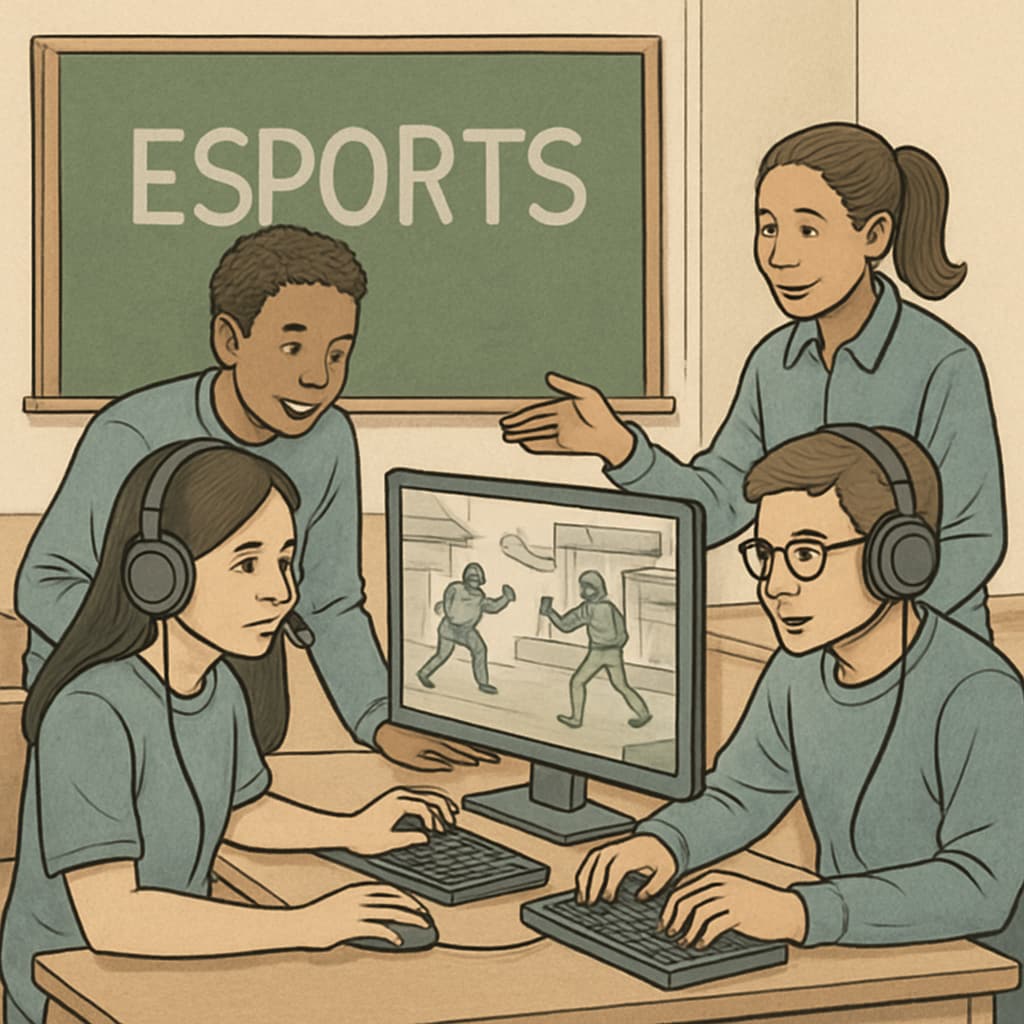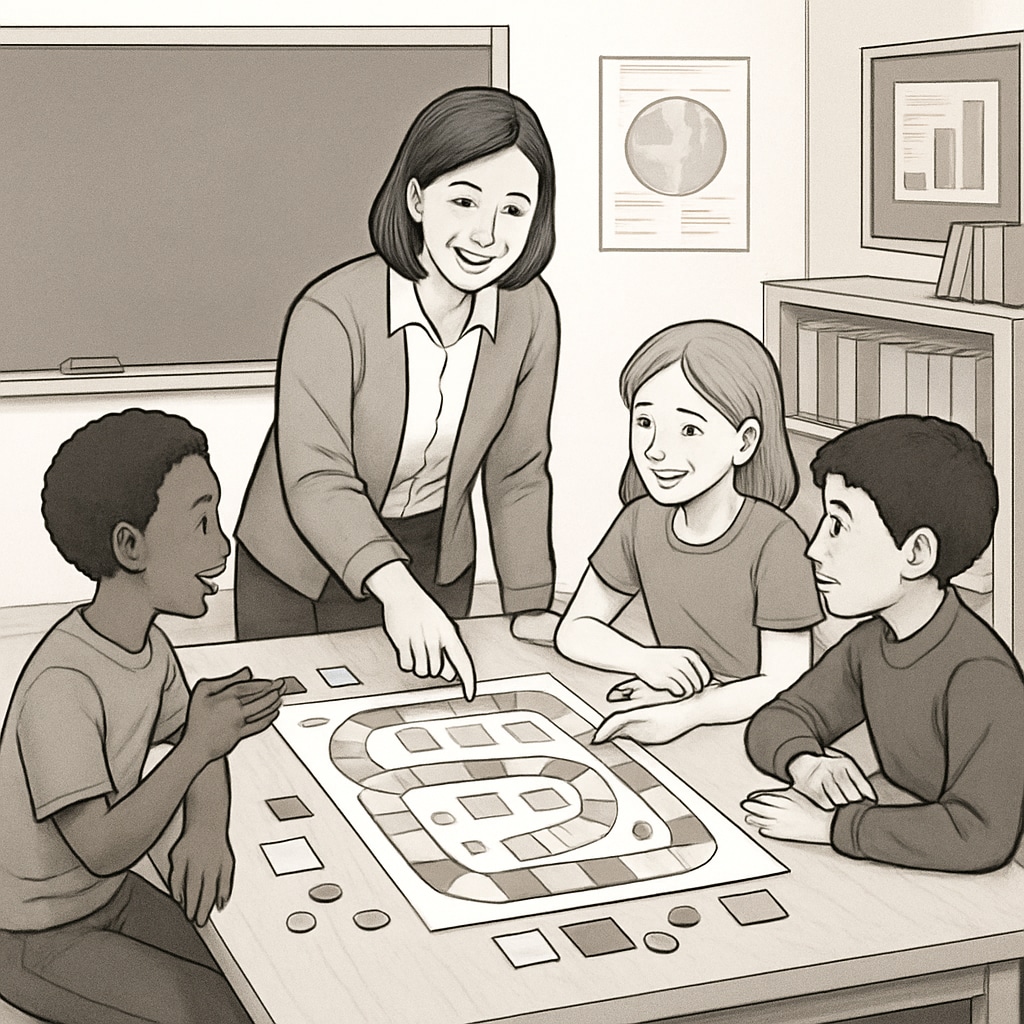The combination of esports, game-based learning, and education is revolutionizing traditional classrooms. GameClass, in partnership with the North America Scholastic Esports Federation (NASEF), has pioneered a groundbreaking approach to education by connecting students’ love for gaming with academic subjects. With outreach to over 9,000 esports clubs worldwide, this innovative model is transforming K12 learning into an engaging, future-ready experience.
The Rise of Esports in Education
Esports, or competitive video gaming, has surged in popularity over the past decade, becoming a billion-dollar industry with millions of fans worldwide. While traditionally seen as purely recreational, educators and organizations like GameClass and NASEF are now recognizing its potential as a powerful learning tool. By integrating esports into academic programs, students engage in a familiar, exciting medium while improving critical skills such as teamwork, problem-solving, and strategic thinking.
One key advantage of esports in education is its ability to bridge the gap between entertainment and academics. For example, students participating in esports clubs often apply concepts from science, technology, engineering, and mathematics (STEM) to their gaming strategies. This approach fosters a deeper understanding of these subjects while keeping students motivated and engaged.

Game-Based Learning: The Future of Engagement
Game-based learning leverages the principles of gamification—such as rewards, challenges, and interactive storytelling—to make education more engaging. GameClass’s collaboration with NASEF expands this concept by designing curricula that align with esports activities. Students not only practice gaming but also learn related subjects like physics (understanding game mechanics), mathematics (analyzing player statistics), and even language arts (developing persuasive arguments for team strategies).
According to a Britannica article on game-based learning, this method increases student motivation by presenting academic content in a fun, interactive format. By incorporating esports, educators tap into students’ existing interests, ensuring lessons feel relevant and engaging.
How GameClass and NASEF Are Leading the Way
The partnership between GameClass and NASEF represents a significant leap forward in integrating esports into education. Together, they’ve established a global network of over 9,000 esports clubs that serve as platforms for both gameplay and academic enrichment. These clubs provide students with opportunities to explore career pathways in gaming-related fields, such as game design, event management, and digital marketing.
Additionally, the programs emphasize social-emotional learning. By participating in esports teams, students develop soft skills like communication, leadership, and resilience. For instance, managing a team during a high-stakes competition mirrors real-world workplace scenarios, preparing students for future challenges.

Challenges and Opportunities in Esports Education
Despite its promise, integrating esports into education is not without challenges. Critics often raise concerns about screen time, game addiction, and the potential for distraction. However, advocates argue that structured programs like those offered by GameClass and NASEF mitigate these risks by emphasizing balance and purpose-driven gaming. Educators play a pivotal role in ensuring students benefit academically and socially from these activities.
Moreover, the esports-education model presents an opportunity to address the digital divide. By providing access to technology and fostering digital literacy, these programs ensure that students from all backgrounds can participate and thrive. This inclusivity prepares a diverse generation of learners for the tech-driven workforce of the future.
The Future of Learning: What’s Next?
As technology continues to shape education, the integration of esports and game-based learning is likely to expand further. Schools worldwide are beginning to adopt similar models, inspired by the success of GameClass and NASEF. The ultimate goal is to create a holistic learning ecosystem where students’ passions drive their academic and personal growth.
In the coming years, we can expect to see more collaborations between educators and gaming organizations, the development of specialized esports curricula, and the rise of esports as a respected academic discipline. By harnessing the power of gaming, educators can unlock new possibilities for 21st-century learning.
As GameClass and NASEF have demonstrated, esports is more than just a game—it’s a gateway to knowledge, skills, and opportunities.


